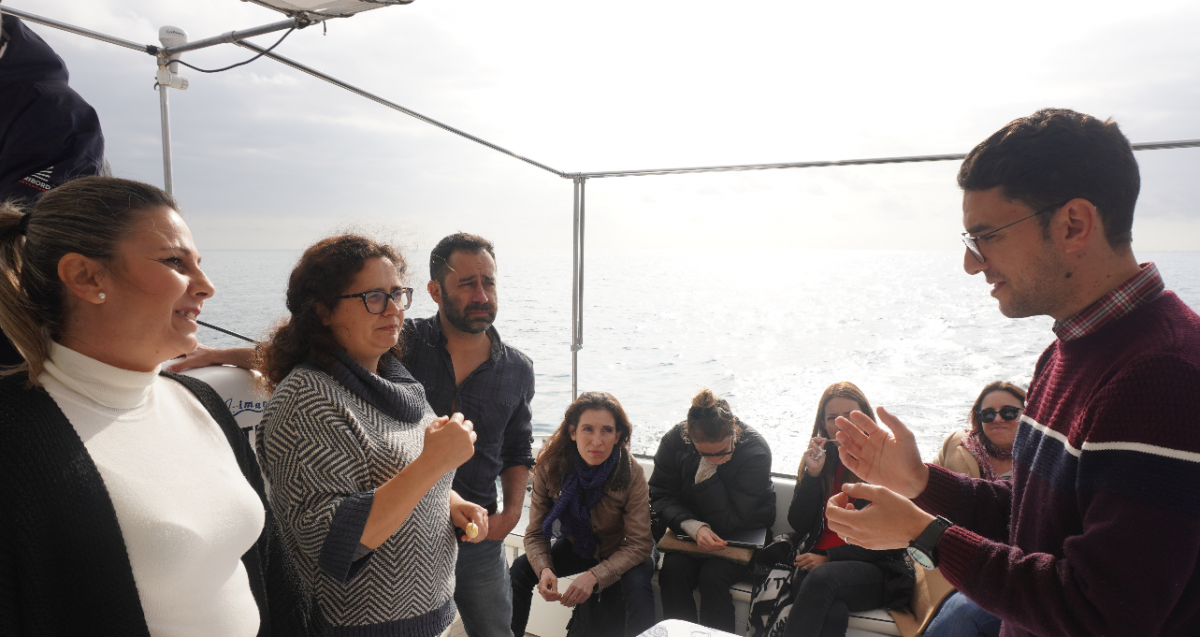IUCN unveils new guidelines for businesses committed to improving their biodiversity performance
Gland, Switzerland, 15 March 2021 (IUCN) – Businesses committed to address the biodiversity risks and opportunities associated with their activities increasingly need information about the status of species and habitats found across their operations and in their supply chains.

Photo: NatureMetrics
The new IUCN guidelines released today facilitate biodiversity performance assessment at the corporate level and support internal decision-making as well as external disclosure.
Guidelines for planning and monitoring corporate biodiversity performance enable companies to be more targeted in their biodiversity focus, identifying the species and habitats that are commonly important across their operations and supply chains, and the benefits they provide to people.
“The new Guidelines provide a roadmap for businesses set on improving how they manage their impacts on biodiversity,” says Giulia Carbone, Deputy Director of the Business and Biodiversity Programme at IUCN. “By using a more strategic approach, linked to core indicators, business leaders can have a more complete picture of their overall biodiversity performance.”
The guidelines were developed jointly by the IUCN Business and Biodiversity Programme and the IUCN Species Survival Commission (SSC) Species Monitoring Specialist Group, with input and support from Nespresso, Boskalis and Alcoa.
Dr P.J. Stephenson, chair of the IUCN SSC Species Monitoring Specialist Group, says: “Building on many years of experience in IUCN, its Members and partners, we translated conservation management tools into a business context. The Guidelines will help companies do more to define and measure their contributions to global conservation goals, and address directly the perilous state of species and ecosystems on our planet.”
The Guidelines are shaped around four stages that steer businesses through practical steps to plan biodiversity goals, choose and apply appropriate biodiversity indicators, and to collect, present and analyse data in a way that facilitates results-based management and corporate biodiversity reporting.
By adopting corporate level biodiversity goals and objectives, a company can prioritise better its intervention at site level or in its supply chain, and eventually track its contribution to the United Nations Sustainable Development Goals.
Nespresso, Boskalis and Alcoa have provided the testing ground for the development of this toolkit for business. They represent three different sectors with a common challenge: the need to identify a clear process to establish goals and indicators at the corporate level to help them manage their impacts and dependencies on biodiversity.
For more information or to set up interviews, please contact:
IUCN media relations: +41 22 999 0392, press@iucn.org
###
Additional quotes
Guillaume Le Cunff, CEO, Nespresso:
“Protecting biodiversity and ecosystems, which is a critical topic to ensure the preservation of coffee in the future, has been at the heart of our coffee sourcing approach through our AAA Sustainable Quality™ Program for close to 20 years. Our contribution to these guidelines is another important milestone in our ten-year relationship with IUCN. They give the industry a unifying approach, bringing together regenerative coffee agriculture actions implemented at local level with a global performance framework to measure biodiversity impact. It also provides us with a strong foundation for the incorporation of science-based targets for nature in our sustainability approach. We look forward to testing these recommendations with our partners and the farmers in the coffee landscapes.”
Claire Bryant, Group Sustainability Manager, Boskalis:
“As a global dredging and marine contractor we have a significant interaction with the natural environment and have been championing the use of nature-based solutions for over a decade. Our influence however on infrastructure investment decisions made by our clients affecting biodiversity is limited at best. Working together with IUCN and contributing to the development of the guidelines has helped us to navigate this complexity. We have defined our biodiversity framework and will be testing our core indicators throughout the course of this year.”
Andrew Grigg, Biodiversity Programs Manager, Alcoa:
“Alcoa, a leading global company in the sustainable product of aluminium, is committed to continual improvement in biodiversity management performance. Alcoa Foundation is proud to support IUCN’s development of these guidelines, recognizing they are a timely and valuable tool in assisting businesses to develop their biodiversity vision and goals, while also considering appropriate performance metrics for both internal decision-making and external transparency.”
About IUCN
IUCN, International Union for Conservation of Nature, helps the world find pragmatic solutions to our most pressing environment and development challenges by supporting scientific research; managing field projects all over the world; and bringing governments, NGOs, the United Nations, international conventions and companies together to develop policy, laws and best practice.
IUCN is the world’s oldest and largest global environmental organization, with more than 1,400 Member organisations and over 17,000 volunteer experts in some 160 countries. This diversity and vast expertise makes IUCN the global authority on the status of the natural world and measures needed to safeguard it.



